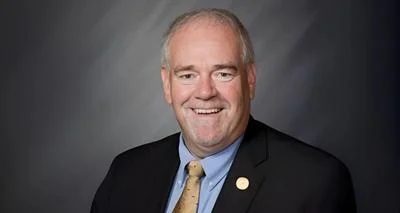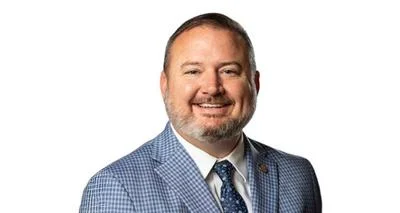Lillian Floutsis, treasurer for the Marion County Young Republicans. | Provided
Lillian Floutsis, treasurer for the Marion County Young Republicans. | Provided
In Indiana, we look after our neighbors and stretch every dollar. But as prescription costs climb, the biggest player of all, Big Pharma, quietly shapes a narrative to its own benefit.
Indiana is home to pharmaceutical giants like Eli Lilly—corporations with deep pockets and powerful lobbying arms. Yet, whenever the debate over drug prices or pharmacy benefit managers (PBMs) heats up, it’s not the billion-dollar drug manufacturers stepping forward. Instead, they send out smaller voices in the form of passionate independent pharmacists, painted as local Davids who bravely battle the Goliaths of retail pharmacy chains and PBMs.
Who wouldn’t want to root for a Main Street pharmacist against a faceless corporate “middleman”? But the true Goliaths in this story are the drug companies. PBMs for all their flaws exist because somebody has to negotiate with those manufacturers to rein in prices. Without PBMs acting as counterweight, drugmakers like Eli Lilly could set list prices as high as they want—leaving patients, employers, and taxpayers footing the bill.
Pharmaceutical companies fuel campaigns attacking PBMs, often using “astroturf” efforts that cloak their involvement behind local pharmacy protests or legislative efforts. They want lawmakers and the public to focus on PBM reimbursement rates or ownership structures so we ignore the fact that drug manufacturers set the prices.
In Indiana, these tactics rally sympathy for independent pharmacies—a valued part of local communities, and genuinely challenged by the economics of modern healthcare. But it’s no accident that these voices are amplified whenever the legislature looks to scrutinize PBMs or retail pharmacy integration. Big Pharma wants PBMs weakened or eliminated, so they can extract even higher profits from Hoosier patients.
When PBMs negotiate, those savings flow directly into lower insurance premiums, smaller co-pays, and more affordable medicine at the pharmacy counter. PBMs are responsible for leveraging economies of scale and negotiating discounts that Hoosier families feel in their paychecks every month. In fact, the average Indiana patient saves hundreds, sometimes thousands of dollars per year because of PBM-negotiated discounts.
Meanwhile, drugmakers have repeatedly raised list prices on critical medications—including insulin—pushing the entire system to the breaking point. No independent pharmacist, no matter how beloved, can stand up to a multinational corporation in a real negotiation over prices. Only PBMs and large insurers have enough bargaining power to hold Big Pharma accountable.
Critics say PBMs “steer” patients or limit where prescriptions can be filled. But what good is a choice if medicine becomes so expensive you skip it altogether? True Hoosier values lie in making sure everyone gets medicine they can afford, not protecting the profit margins of pharmaceutical companies.
PBMs are not flawless. They need oversight, transparency and reform, especially to ensure that savings make it all the way to patients’ wallets and don’t get lost in bureaucracy. But the alternative—handing more power to drub manufacturers—is a recipe for higher costs, not better care.
Indiana values common sense and community. We cannot let Wall Street’s Pharma giants manipulate local pharmacists and Hoosier sentiment to pad their profits. Let’s keep our eyes on the real Goliaths in this fight, and make healthcare dollars go farther for every family in the state
Lillian Floutsis is the treasurer for the Marion County Young Republicans.






 Alerts Sign-up
Alerts Sign-up